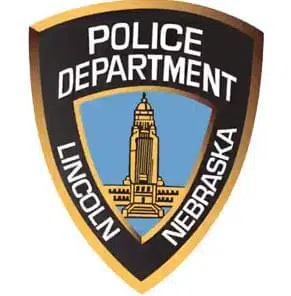Between Friday, July 23 and Sunday, July 25, LPD responded to 10 overdoses. One of the common themes appears to possibly involve cocaine. This does not mean people are overdosing on cocaine; rather, it appears that people may be ingesting a substance they believe is cocaine, but in reality, the substance may contain unknown opiates, resulting in overdoses. When a person consumes a controlled substance that is not obtained from and regulated by a doctor/pharmacy, the consumer may never know every ingredient. This includes pills, powders, marijuana, or any other controlled substance. Some examples of common opioids include heroin, fentanyl, codeine, and morphine.
Law enforcement has three primary roles in responding to the opioid crisis: emergency response, public safety, and law enforcement. Here are five strategies that police can adopt to serve all of their roles.
1. Signal to the public that the local police are interested in helping the victims of opioid abuse and arresting those who are doing them harm.
First, according to Nebraska Revised Statute 28-472, an individual is immune from criminal prosecution if the person, in good faith, makes a request for emergency medical assistance in response to a drug overdose and remains on scene until medical assistance and law enforcement arrive. If you come across pills/controlled substances, do not touch them. For assistance in finding treatment options near you or your friends/loved ones, please call 1-800-662-HELP (4357). Lincoln residents can also call the Lincoln Treatment Center at 402-488-2122.
Second, our Narcotics Unit conducts interdiction operations to stem the flow of dangerous narcotics into Lincoln and Lancaster County. They also investigate overdose deaths and work to hold those responsible accountable. In 2020, they investigated 13 Fentanyl deaths in Lincoln.
Third, LPD works closely with the Mental Health Association of Nebraska, the Bridge, and other community resources to ensure that victims of opioid overdoses can obtain services and resources.
2. Develop relationships and maintain communications with opioid users after they have had an opioid-related encounter with the police.
LPD conducts follow-up with victims of opioid users, attempting to identify the individuals responsible for supplying dangerous controlled substances to residents who live with addiction. LPD also works closely with the Mental Health Association of Nebraska, the Bridge, and other community resources to ensure that victims of opioid overdoses can obtain services and resources.
3. Inside the department, designate an individual or a team to focus on understanding how the department is responding to opioid cases.
The captain of the Narcotics Unit and LPD’s Crime Analysis Unit track overdoses and related narcotics activity. In conjunction with narcotics investigations and intelligence operations, LPD uses this data to identify and apprehend manufacturers and distributors responsible for flooding our community with controlled substances, especially opioids. In addition, the Narcotics Unit works with Education and Personnel to educate officers and community residents about opioids and overdoses. The Narcotics Unit is the designated team responsible for how LPD handles opioid cases.
4. Outside the department, participate in multi-agency and cross-disciplinary collaborations to develop new response options and make more efficient use of limited resources.
The captain of our Narcotics Unit participates in an Opioid Prevention Board through the Health Department. This is a grant funded program intended for increasing education of the public, education of doctors, etc. This is a powerful way we can help educate the public about the dangers of overdoses and how to respond if a loved one becomes a victim.
5. Ensure that officers understand how opioids affect a person’s body and mind.
During the academy and during annual in-service, officers learn how opioids affect a person’s body and mind. Instructors teach officers to recognize different controlled substances, how to identify individuals possibly under the influence of a controlled substance, and symptoms of an overdose. Officers also learn how trauma, mental health, and addiction intersect. We recognize that people who overdose may live with substance abuse or mental health issues, as well as other challenges. We hope we can reach as many people as possible through education and interdiction. In addition, many of our officers carry NARCAN. 62 LPD officers across different teams and shifts are currently assigned NARCAN. In 2020, LPD had 7 overdose saves.







